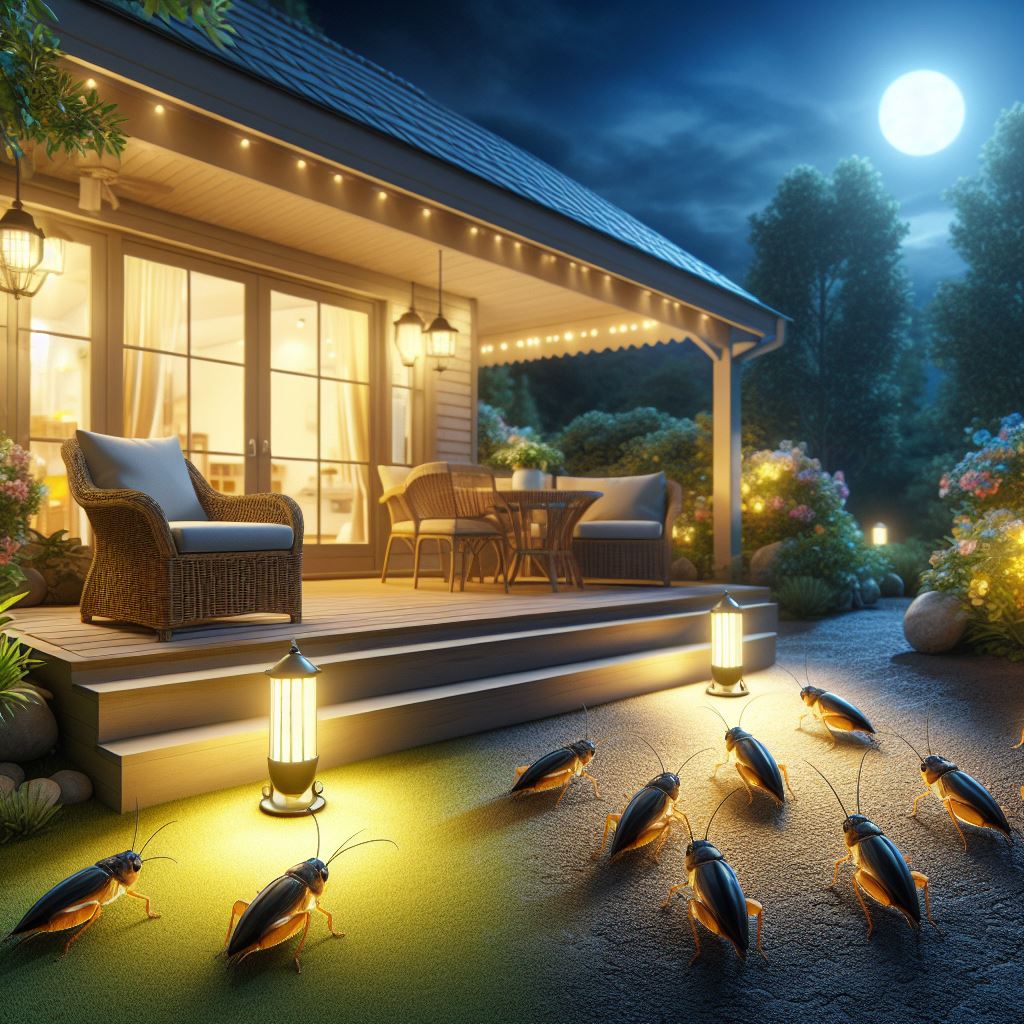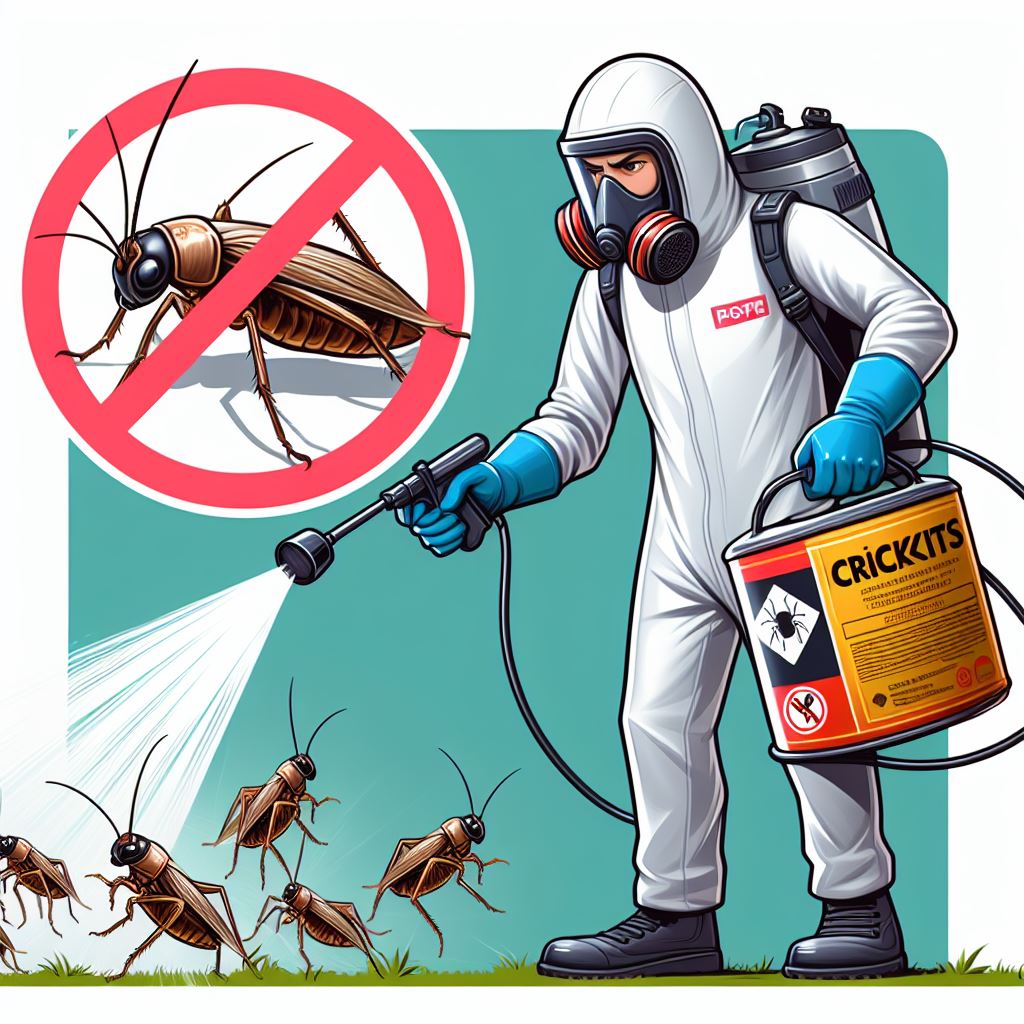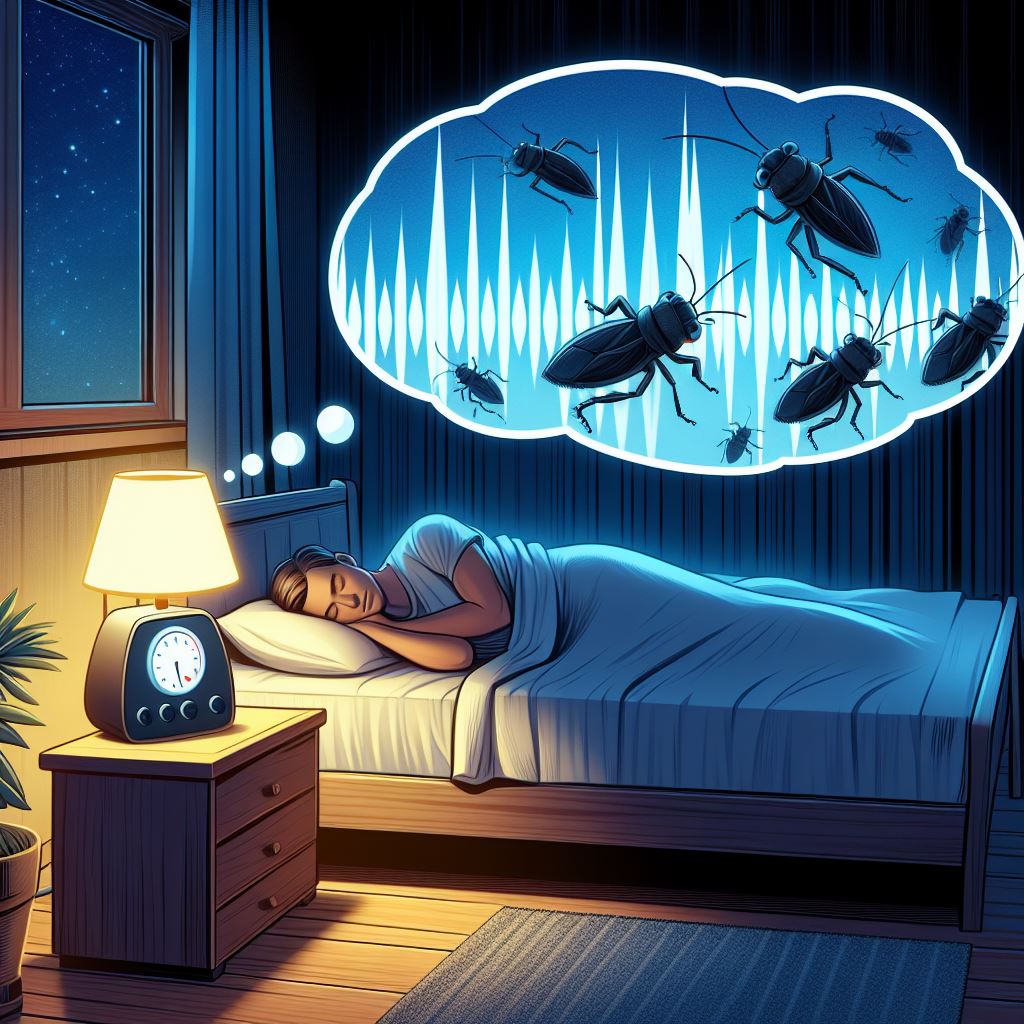Are you tired of those relentless crickets hijacking your peaceful nights with their incessant chirping? Well, fear not, because I've got your back.
After years of battling these chirping maestros. I've compiled the ultimate guide on how to stop crickets from chirping at night.
According to a fascinating case study conducted by the National Sleep Foundation, the disruptive sounds of crickets can significantly impact the quality of your sleep.
This study showed that people exposed to continuous cricket chirping experienced disturbances in their sleep patterns, leading to decreased overall sleep satisfaction.
But fear not, guys, for I've gathered eight proven methods that have worked wonders for countless individuals dealing with this chirping conundrum.
From natural repellents to sealing entry points, outdoor lighting techniques to maintaining a tidy yard, and even uniquely embracing the chirping, we've got you covered.
Let's dive into these tried-and-true methods and bid adieu to the cricket symphony that's been interrupting our beauty sleep.
Are crickets afraid of noise?
Crickets are not afraid of noise. They are resilient to loud sounds and can continue chirping even in noisy environments.
While sudden and intense noises may briefly interrupt their chirping, they quickly resume once they perceive the situation as safe.
Crickets are more responsive to specific types of sounds that resemble their chirping, which can attract or communicate with other crickets.
Overall, noise does not significantly affect crickets' behavior or cause fear in them.
What makes crickets go quiet?
Crickets go quiet due to factors such as lower temperatures, the presence of predators, the end of mating season, daytime or morning hours, and environmental disturbances.
These factors can influence their chirping behavior, but it's important to note that crickets may resume chirping when conditions become more favorable.
Why do crickets never stop chirping?

Crickets never stop chirping because it is their way of communicating, attracting mates, and establishing their territory.
The chirping sound is produced by rubbing their wings together, and it serves as a courtship display for females.
While their activity levels may vary based on factors like temperature and time of day, chirping is a natural and essential behavior for crickets.
What sound repels crickets?
High-frequency ultrasonic waves and predator sounds can repel crickets. Ultrasonic pest-repellent devices emit frequencies above 30,000 Hz that are irritating to crickets. Predator sounds, such as predatory insects or bird calls, create a threatening environment for crickets.
However, the effectiveness of sound as a repellent may vary, and other methods like removing attractants and using natural repellents can also be effective in controlling crickets.
When Do Crickets Stop Chirping at Night?
Crickets typically start chirping in the evening as the temperature cools down and darkness sets in.
The specific time at which crickets stop chirping at night can vary depending on the species and environmental conditions.
In general, cricket chirping tends to diminish gradually as the night progresses and temperatures drop further.
By the early hours of the morning, usually around 3 to 4 a.m., cricket chirping activity tends to decrease significantly or cease altogether.
It's important to note that these are approximate timings and can vary based on factors such as location, season, and local climate.
How to Stop Crickets From Chirping at Night?
Natural Repellents

We'll start our cricket-silencing adventure with Mother Nature's help.
These little critters have a few scents they can't stand.
So, grab some peppermint oil, citronella, or lavender and make your cricket-repelling potion.
Place cotton balls soaked in these oils near windows, doors, and any entry points to keep those chirpers at bay.
Sealing Entry Points

You know those tiny gaps and cracks in your home that even a cricket can wiggle through?
Well, it's time to show them who's boss! Seal those entry points using caulk or weatherstripping.
Let's make sure these uninvited guests don't get a chance to crash your cozy abode.
Outdoor Lighting Techniques

Crickets love a good light show, and that's precisely what we're going to manipulate.
Swap out those bright lights for yellow or sodium vapor lights, which are less attractive to our chirping buddies.
By dimming the spotlight, we're reducing their chances of throwing an all-night concert on your porch.
Maintaining a Tidy Yard

Attention all neat freaks and garden enthusiasts! Crickets have a thing for overgrown grass and messy yards.
Show them who's boss by keeping your lawn well-trimmed and tidy.
Say goodbye to their hiding spots and make your yard an inhospitable place for those chirpers.
Insecticides for Infestations

When all else fails and you're facing a full-blown cricket invasion, it's time to call in the big guns—cue the insecticides!
But be cautious, my cricket-fighting warriors.
Choose insecticides specifically formulated for crickets and follow the instructions carefully.
Safety first!
White Noise and Sound Machines

What's better than fighting fire with fire? Fighting chirping with more pleasant sounds!
White noise and sound machines can mask those cricket concerts, lulling you into a serene slumber.
Crickets may be good musicians, but they're no match for the soothing hum of white noise.
Professional Pest Control Services

If the chirping persists and you're at your wits' end, it's time to bring in the experts.
Pest control superheroes swoop in to save the day and restore peace to your nights.
They know all the secret moves to evict those crickets for good.
Embracing Cricket Chirping

Okay, okay, bear with me for a moment. What if we flip the script and embrace the symphony of crickets? It may sound crazy, but sometimes it's best to make peace with nature's orchestra.
Relaxation techniques, mindfulness practices, and accepting the soothing sounds might just be the trick to finding harmony with those little chirpers.
Conclusion
All Right guys, we've reached the end of our chirping adventure. It is time to give yourselves a round of applause for taking a stand against those nighttime melodists.
You're now armed with eight proven methods on how to stop crickets from chirping at night to silence those chirping crickets and reclaim your peaceful nights.
But hey, let's not forget the power of acceptance and embracing the symphony of nature. Sometimes, finding harmony with those chirping maestros can lead to a newfound appreciation for the wonders of the night.
Now, it's time for you to choose your weapon of choice. Will you repel, seal, dim, tidy, exterminate, drown out, call for backup, or make peace with the chirping? The choice is yours, guys
In the end, May your nights be filled with tranquility, restful sleep, and dreamy adventures.
Thank You!
Faqs
What are the best natural methods to stop crickets from chirping at night?
Some of the best natural methods to stop crickets from chirping at night include using peppermint oil, citronella, and lavender as repellents, as well as maintaining a tidy yard and sealing entry points.
Do ultrasonic pest-repellent devices work against crickets?
Yes, ultrasonic pest-repellent devices can be effective against crickets. These devices emit high-frequency ultrasonic waves that are irritating to crickets and can help deter them from your surroundings.
Are there professional services available to help with cricket infestations?
Yes, if you're dealing with a persistent cricket infestation, it's advisable to seek professional pest control services. They have the expertise and tools to address the issue effectively and provide long-term solutions.











